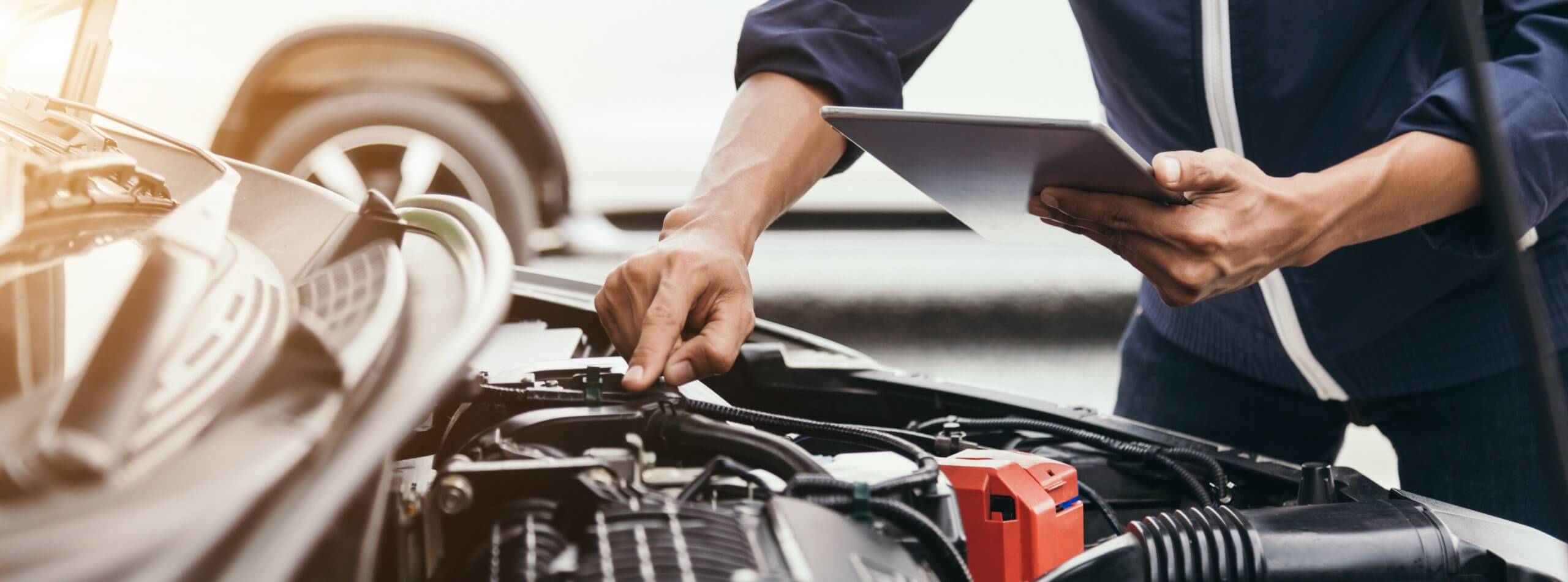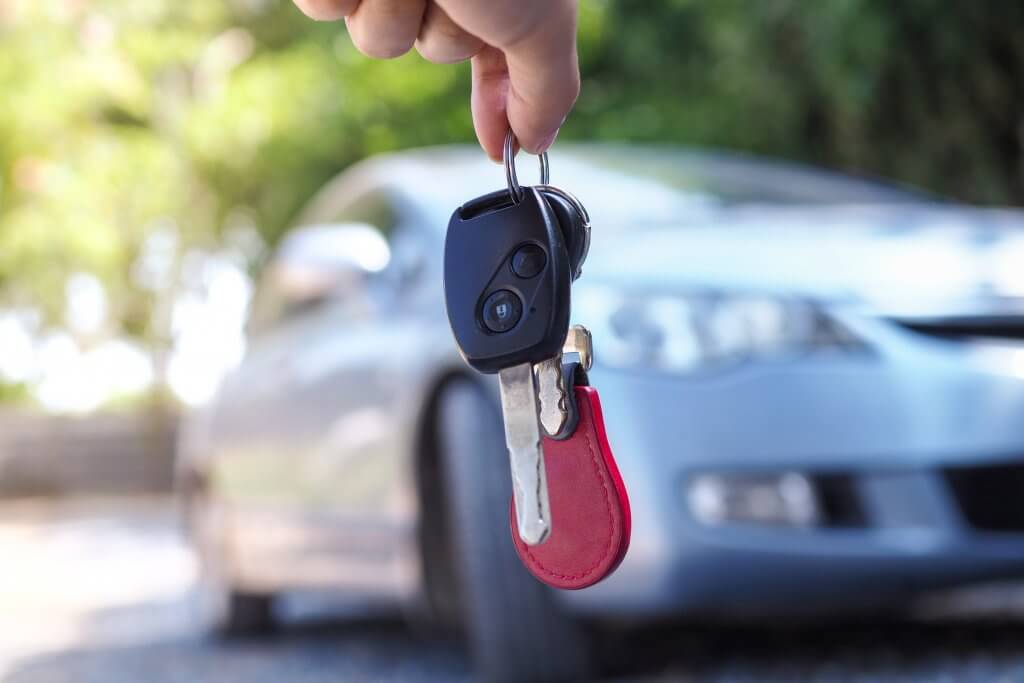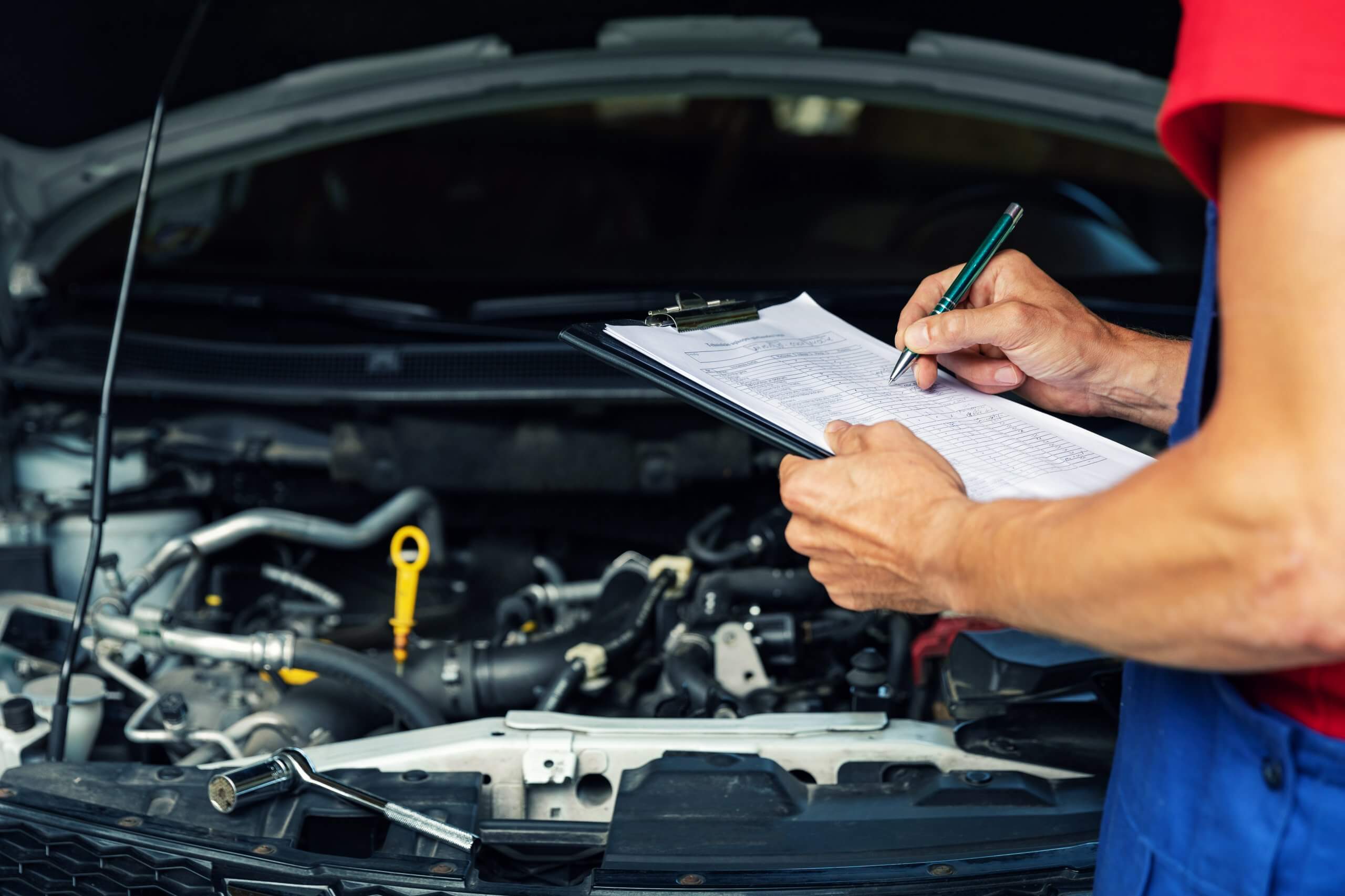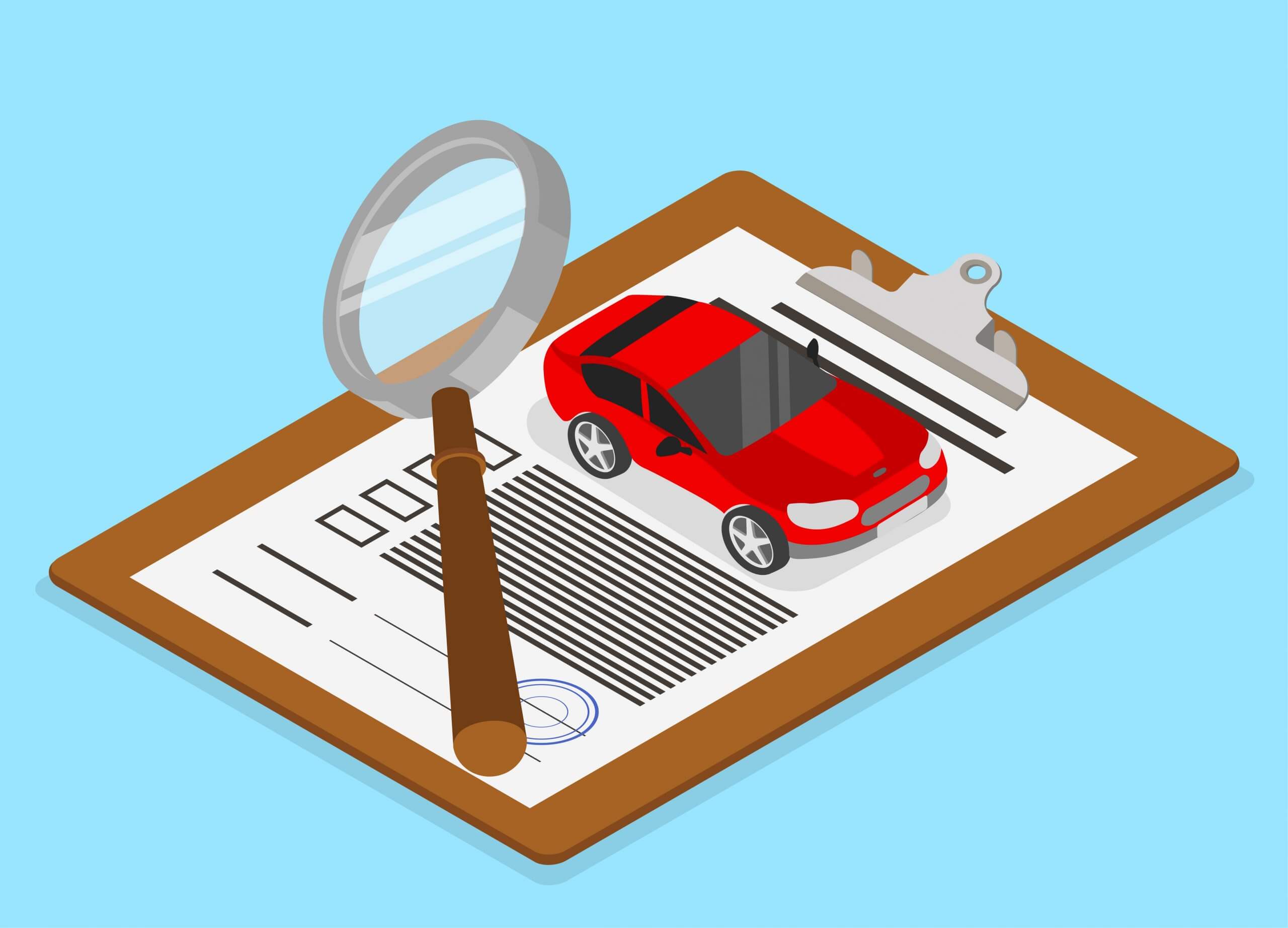
When it comes to purchasing a used truck, making an informed decision is crucial to ensure you get the best value for your money. Whether you're a contractor in need of a reliable workhorse, an adventurer seeking a rugged vehicle for offroad escapades, or simply someone looking for a dependable mode of transportation, finding the right used truck can make all the difference. At Overstock Vehicles Tampa, we understand the importance of choosing a high quality used truck, and we're here to guide you through the process.
Our dealership is conveniently located in Tampa, Florida, and we're proud to serve customers from Tampa, Lakeland, St. Petersburg, and the surrounding areas. We invite you to visit us or contact our friendly team to explore our extensive inventory of quality used trucks. Let us help you find the perfect truck that meets your needs and exceeds your expectations.
1. Vehicle History Report
When considering a used truck, one of the first steps you should take is to review the vehicle history report. This report provides invaluable information about the truck's past, helping you make an informed decision.
What is a Vehicle History Report?
A vehicle history report is a comprehensive document that details crucial aspects of a truck's background. It typically includes information such as:
- Previous Owners: The number of previous owners and their locations.
- Accident History: Records of any accidents the truck has been involved in, along with the extent of the damage.
- Title Status: Information on whether the truck has a clean title or has been salvaged, rebuilt, or branded in any way.
- Service Records: Maintenance and repair history, including oil changes, tire rotations, and other routine services.
- Mileage Records: Verified odometer readings to ensure there are no discrepancies.
Why is a Vehicle History Report Important?
Knowing the history of a used truck is essential for several reasons:
- Safety: Identifying any past accidents can help you understand potential safety issues or structural damage.
- Reliability: Understanding the maintenance history gives you insight into how well the truck has been cared for, which can impact its future performance.
- Value: A truck with a clean history is generally worth more and can be a better long term investment.
- Peace of Mind: Having a complete history report can provide confidence that you are making a wise purchase.
Overstock Vehicles Tampa: Transparency and Trust
At Overstock Vehicles Tampa, we prioritize transparency and customer satisfaction. That's why we provide detailed vehicle history reports for all our used trucks. Our commitment to honesty ensures that you have all the information you need to make an informed decision.
Whether you're shopping in Tampa, Lakeland, or St. Petersburg, our team at Overstock Vehicles Tampa is dedicated to helping you find a truck that meets your needs and fits your budget. By offering comprehensive vehicle history reports, we aim to build trust and confidence in every purchase.
Visit our dealership or contact us today to explore our inventory and learn more about the vehicle history reports available for each truck. Let us help you find a reliable and trustworthy used truck that you can count on for years to come.

2. Mechanical Condition
Ensuring the mechanical condition of a used truck is paramount to guaranteeing its reliability and longevity. A thorough inspection can reveal potential issues that might not be immediately visible.
Importance of a Thorough Mechanical Inspection
Before finalizing your purchase, it's crucial to have the truck inspected by a trusted mechanic. Here are some key areas to focus on:
- Engine: Check for any signs of leaks, unusual noises, or excessive exhaust smoke. These can indicate underlying engine problems.
- Transmission: Ensure smooth shifting without any delays or harsh movements. Listen for any grinding or whining noises.
- Brakes: Test the brakes for responsiveness and check for any squeaking or grinding sounds, which could indicate worn brake pads or rotors.
- Suspension: Evaluate the suspension system by driving over bumps and paying attention to how the truck handles. Any excessive bouncing or noise could be a red flag.
- Steering: Check for smooth and responsive steering. Any stiffness or unusual noises should be investigated.
- Tires: Inspect the tires for even wear and sufficient tread depth. Uneven wear can suggest alignment issues or suspension problems.
Common Issues to Look For
During the inspection, keep an eye out for these common problems:
- Rust and Corrosion: Examine the truck's body and undercarriage for any signs of rust or corrosion, especially in older vehicles. Rust can weaken the structural integrity of the truck.
- Fluid Leaks: Check under the truck for any leaks of oil, transmission fluid, coolant, or brake fluid. Leaks can indicate significant issues that need to be addressed.
- Electrical Systems: Test all electrical components, including lights, wipers, and the infotainment system, to ensure they are functioning correctly.
- Exhaust System: Listen for any unusual sounds from the exhaust and check for any visible damage or leaks.
Overstock Vehicles Tampa: Quality Assurance
At Overstock Vehicles Tampa, we understand the importance of a reliable used truck. That's why all our trucks undergo rigorous mechanical inspections before being added to our inventory. Our expert technicians meticulously examine each vehicle to ensure it meets our high standards of quality and reliability.
Whether you're browsing for used trucks in Tampa, Lakeland, or St. Petersburg, you can trust Overstock Vehicles Tampa to provide vehicles in excellent mechanical condition. We take pride in offering trucks that you can depend on, with the peace of mind that comes from knowing they have been thoroughly inspected.
Visit our dealership or contact us today to explore our selection of quality used trucks. Our team is here to help you find a truck that not only meets your needs but also exceeds your expectations in terms of reliability and performance.

3. Mileage
Mileage is a key factor to consider when buying a used truck. It can provide insight into the truck’s usage and potential longevity.
The Significance of Mileage
Mileage refers to the total number of miles a truck has traveled since it was first put on the road. While it’s not the only indicator of a vehicle’s condition, it plays a significant role in assessing its overall wear and tear.
Low Mileage: Generally, a truck with lower mileage is preferable as it typically indicates less wear on the engine, transmission, and other critical components. Low Mileage trucks often have a longer remaining lifespan.
High Mileage: High Mileage trucks can still be a good purchase, especially if they have been well maintained. Regular maintenance and service records can mitigate concerns about high mileage.
Evaluating Mileage in Context
While considering mileage, it’s important to evaluate it in the context of the truck’s age and usage:
- Age of the Truck: A newer truck with high mileage might have been used for long distance commuting or as a fleet vehicle, which can be less stressful than frequent short trips. Conversely, an older truck with low mileage might have been used sparingly but could have suffered from prolonged periods of inactivity.
- Maintenance History: A well documented maintenance history can significantly enhance the appeal of a high mileage truck. Regular oil changes, tire rotations, and other routine services indicate that the truck has been cared for properly.
- Usage Type: Consider how the truck was used. Was it primarily driven on highways, which is less taxing on the engine and brakes, or did it endure frequent stop and go city driving or heavy towing and hauling?
Overstock Vehicles Tampa: Mileage Transparency
At Overstock Vehicles Tampa, we believe in complete transparency. We provide detailed information about the mileage and condition of every used truck in our inventory. Our team will help you understand the implications of the truck’s mileage and provide context through its service records and overall condition.
Whether you’re shopping for used trucks in Tampa, Lakeland, or St. Petersburg, Overstock Vehicles Tampa is committed to helping you find the right truck. We offer a wide selection of trucks with various mileage levels, ensuring you can choose the one that best fits your needs and budget.
Visit our dealership or contact us today to explore our inventory of quality used trucks. Our knowledgeable staff is here to guide you through the process, providing all the information you need to make an informed decision. Let us help you find a reliable truck that you can count on for years to come.

4. Service Records
Service records are a vital aspect of evaluating a used truck's condition. They provide a window into the vehicle's maintenance history, helping you gauge how well it has been cared for over the years.
The Role of Service Records
Service records document the maintenance and repair history of a truck. Key details to look for include:
- Routine Maintenance: Regular oil changes, tire rotations, and brake inspections indicate that the truck has been well maintained.
- Major Repairs: Records of significant repairs, such as transmission rebuilds or engine overhauls, can signal potential past issues but also show that these issues have been addressed.
- Recall Work: Confirmation that any manufacturer recalls have been serviced can be a good sign of a truck’s reliability and the previous owner’s diligence.
Types of Maintenance to Look For
When reviewing service records, pay attention to the following:
- Oil Changes: Regular oil changes are essential for engine health. Look for records showing consistent oil changes according to the manufacturer’s recommended intervals.
- Brake Maintenance: Routine brake inspections and replacements are crucial for safety. Ensure there are records of brake servicing.
- Tire Care: Tire rotations, alignments, and replacements indicate proper attention to tire health, which affects overall driving performance.
- Fluid Checks: Regular checks and replacements of fluids, including transmission fluid, coolant, and brake fluid, are vital for a truck’s longevity.
- Filter Replacements: Regular replacement of air filters, fuel filters, and cabin filters contribute to the efficient operation of the truck.
Overstock Vehicles Tampa: Commitment to Transparency
At Overstock Vehicles Tampa, we ensure that all our used trucks come with comprehensive service records. We believe in providing our customers with complete transparency, allowing them to make informed decisions.
Whether you're searching in Tampa, Lakeland, or St. Petersburg, you can trust that Overstock Vehicles Tampa offers used trucks with well documented maintenance histories. Our dedication to quality and reliability ensures that you drive away with confidence.
Visit our dealership or contact us today to explore our inventory of meticulously maintained used trucks. Our team is here to assist you in finding a truck that not only meets your needs but also has a proven track record of reliable service.

5. Towing and Hauling Capacity
For many truck buyers, towing and hauling capacity are crucial factors. Whether you're hauling equipment for work or towing a boat for weekend getaways, it's important to choose a truck that can handle your specific needs.
Understanding Towing and Hauling Capacity
Towing capacity refers to the maximum weight a truck can safely tow, while hauling capacity indicates how much weight the truck can carry in its bed. These capacities are determined by the truck's engine power, transmission, axle ratios, and overall build.
- Towing Capacity: Ensure the truck you choose can tow the weight of your trailer, boat, or other loads. Exceeding the towing capacity can lead to mechanical failures and safety issues.
- Hauling Capacity: Consider the weight of the cargo you typically carry. Overloading the truck bed can strain the suspension and affect handling.
Matching Your Needs to the Truck’s Capabilities
Assess your specific requirements:
- Work Needs: If you’re using the truck for work, consider the type of equipment you’ll be towing or hauling. Ensure the truck has the necessary power and durability.
- Recreational Use: For recreational purposes, like towing a camper or boat, ensure the truck’s towing capacity exceeds the weight of your trailer or watercraft.
- Versatility: Some trucks offer a balance of towing and hauling capabilities, making them versatile for various needs.
Examples of High Capacity Trucks
At Overstock Vehicles Tampa, we offer a range of trucks with impressive towing and hauling capacities. Our knowledgeable staff can help you understand the specifications of each model to find the perfect match for your needs.
Overstock Vehicles Tampa: Expertise and Guidance
Overstock Vehicles Tampa is your goto destination for finding used trucks with the right towing and hauling capacities. Serving customers from Tampa, Lakeland, and St. Petersburg, we provide detailed information on each truck’s capabilities to ensure you make the best choice.
Visit our dealership or contact us today to explore our inventory and find the perfect truck that meets your towing and hauling needs. Our team is ready to assist you in selecting a truck that delivers the power and performance you require.

6. Fuel Efficiency
In today’s world, fuel efficiency is a key consideration for many truck buyers. Choosing a truck that offers good fuel economy can save you money and reduce your environmental impact.
Importance of Fuel Efficiency
Fuel efficiency refers to the distance a truck can travel on a specific amount of fuel. It's an important factor for both cost savings and environmental reasons:
Cost Savings: Trucks with better fuel efficiency require less frequent refueling, saving you money over time.
Environmental Impact: Lower fuel consumption means reduced emissions, contributing to a smaller carbon footprint.
Factors Affecting Fuel Efficiency
Several factors influence a truck’s fuel efficiency:
- Engine Size: Smaller engines typically consume less fuel, but larger engines may be necessary for towing and hauling.
- Transmission Type: Modern automatic transmissions often offer better fuel efficiency compared to older models or manual transmissions.
- Driving Habits: Gentle acceleration and maintaining steady speeds can improve fuel efficiency.
- Weight: Lighter trucks generally have better fuel efficiency. Removing unnecessary weight can also improve fuel economy.
- Aerodynamics: Trucks designed with aerodynamic features can reduce drag and improve fuel efficiency.
FuelEfficient Truck Options
At Overstock Vehicles Tampa, we offer a variety of fuel efficient used trucks to suit different needs. Our inventory includes models known for their balance of power and fuel economy, ensuring you don’t have to sacrifice performance for efficiency.
Overstock Vehicles Tampa: Your Source for FuelEfficient Trucks
Overstock Vehicles Tampa is dedicated to helping you find the perfect balance between performance and fuel efficiency. Serving customers from Tampa, Lakeland, and St. Petersburg, we provide a range of options to meet your needs.
Visit our dealership or contact us today to explore our selection of fuel efficient used trucks. Our team is here to help you choose a truck that offers the best combination of power, efficiency, and reliability.

7. Price and Financing Options
The final, but equally important, aspect of buying a used truck is the price and available financing options. Finding a truck that fits your budget and securing favorable financing terms can make the purchasing process smoother and more affordable.
Evaluating the Price of a Used Truck
When assessing the price of a used truck, consider the following:
- Market Value: Research the market value of the truck model you’re interested in. This can help you determine if the asking price is fair.
- Condition and Features: A well maintained truck with additional features may command a higher price but can offer better value in the long run.
- Negotiation: Be prepared to negotiate the price. Dealerships often have some flexibility, especially if you have done your research and can present comparable prices.
Financing Options
Understanding your financing options is crucial:
- Loan Terms: Look for favorable loan terms, including interest rates, repayment periods, and monthly payments that fit your budget.
- Credit Score: Your credit score can significantly impact the financing options available to you. Higher credit scores typically qualify for better rates.
- Down Payment: A larger down payment can reduce the overall loan amount and lower monthly payments.
Overstock Vehicles Tampa: Competitive Pricing and Flexible Financing
At Overstock Vehicles Tampa, we offer competitive pricing on all our used trucks. Our goal is to provide great value while ensuring you get a quality vehicle. Additionally, we offer flexible financing options tailored to suit various budgets and financial situations.
Whether you're shopping in Tampa, Lakeland, or St. Petersburg, our finance team is here to assist you. We work with a network of lenders to provide the best financing solutions, helping you secure the truck you need at a price you can afford.
Visit our dealership or contact us today to explore our inventory and financing options. Our team is dedicated to helping you find a used truck that meets your needs and fits your budget, making the buying process as seamless and stress free as possible.
Call or Visit Overstock Vehicles!
Buying a used truck is a significant investment, and making the right choice involves careful consideration of several important factors. By focusing on the vehicle history report, mechanical condition, mileage, service records, towing and hauling capacity, fuel efficiency, and price and financing options, you can ensure you select a truck that meets your needs and offers the best value for your money.
At Overstock Vehicles Tampa, we are committed to helping you find the perfect used truck. Our extensive inventory, rigorous quality checks, and transparent practices make us the goto destination for used trucks in Tampa, Lakeland, St. Petersburg, and the surrounding areas. We take pride in offering high quality vehicles and exceptional customer service, ensuring that your truck buying experience is smooth and satisfactory.
We invite you to visit our dealership to explore our wide range of used trucks and experience our exceptional service firsthand. Our knowledgeable and friendly staff is here to assist you in finding the truck that best fits your needs and budget. If you have any questions or would like to schedule a test drive, please don’t hesitate to contact us. In the meantime, please check out this blog on whether you should get warranty for your used vehicle.
Discover the Overstock Vehicles Tampa difference today. Visit us at our Tampa location or call us to schedule your test drive. Let us help you find a reliable, high quality used truck that you can count on for years to come.




















